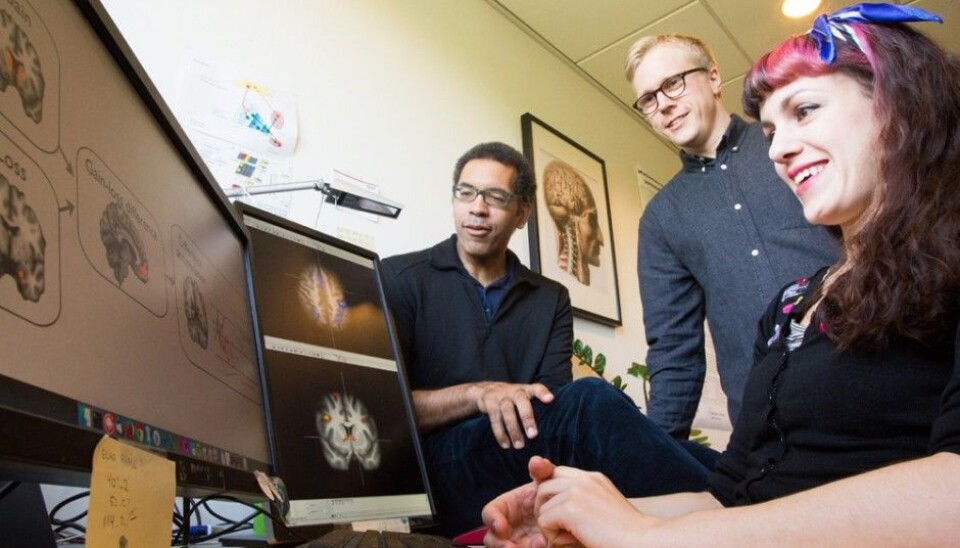
How does ADHD medicine work in adults?
ADHD medications help many adults. But there is no quick fix, researchers report.
We have to make decisions all day long, starting from the time we get up in the morning and have to decide whether to have cheese or jam on our toast.
The more difficult the decisions we have to take, the more important it is that we are able to assess whether a choice is good or bad.
Adults with ADHD struggle to do this. Athanasia Monika Mowinckel concludes in her doctoral dissertation that they simply tend to make poorer decisions.
Less hyperactivity in adults
Decision making is a major problem for adults with ADHD.

Guido Biele of the Norwegian Institute of Public Health heads the University of Oslo (UiO) research group from the Department of Psychology. They have conducted a meta-analysis, i.e. a study of many studies, on this topic.
ADHD studies have put a lot of focus on hyperactivity and impulsivity, but hyperactivity is not a major symptom in adults, says Mowinckel.
“We don’t know why that is,” she says. “Is it because adults with ADHD are simply less hyperactive? Or have they just learned that’s it’s a good idea to behave a certain way in certain situations?”
Feedback comes too late
The researchers believe that poor decision making may be the actual cause of impulsiveness and hyperactivity.
Mowinckel explains how:
“Everything we learn in life we learn through trial and error, and everything you try is the result of a decision you make. You take action and get feedback on whether it was good or bad. Sometimes there’s a delay between the action and the consequence. For a child who has ADHD, this is problematic. The more detached the reinforcement is from the action, the less the child can connect their behaviour to the consequence,” she says.
“If a child doesn’t know what behaviour is right, they try out lots of different ones. This is one of the theories as to why hyperactivity occurs,” Mowinckel says.
Learning how ADHD medication works
The researchers wanted to find out how the drug methylphenidate, the active ingredient in Ritalin, affects adults' decision making.
They studied patients who had been diagnosed with ADHD as adults and had them make financial decisions, using a double-blind randomized study in which all participants were tested twice. Neither the researchers nor the patients knew who received the ADHD medication and who received a placebo.
The researchers simultaneously used brain imaging techniques to observe how the brain worked during the tasks. This allowed the researchers to understand how the medication affects behaviour as well as how it activates the brain.
Medication enabled only slightly better decisions
The researchers found that the participants with ADHD gave weight to financial gains and losses differently than the participants without ADHD did.
The ADHD group on medication made somewhat better decisions. But the difference was not as great as the researchers had expected.
There could be several reasons for that, according to Mowinckel.
“We can’t conclude from this one study that the drug has no effect on adults with ADHD. Research that has followed patients over longer periods has clearly shown that methylphenidate has very beneficial effects in reducing symptoms."
Many carry diagnosis into adulthood
On average, each classroom of 30 students has one to three children with ADHD.
Between 50 and 70 per cent of these children will carry their diagnosis into adulthood, international research shows. That leads many healthcare providers to believe that ADHD is underdiagnosed in many adults.
Mats Fredriksen is one of the researchers in the UiO study. He is also head physician at the outpatient clinic for ADHD assessment in Tønsberg. This is one of the few specialty clinics in Norway that studies and treats adults with ADHD.
“Unfortunately, we know very little about the effects of using drugs over several years,” Fredriksen says.
Although most adults benefit greatly from medication treatments, medications are not a quick fix, he said. Approximately one in every three ADHD patients does not benefit from medication.
A third researcher in the group, Mads Lund Pedersen, was recently awarded NOK 3.3 million to more thoroughly study which patients benefit from ADHD medication and which ones would be better served with a different type of treatment.
In Fredriksen’s 2014 doctoral dissertation, he showed that over 50 per cent of adults with ADHD had been unable to work for at least one year before they were referred to treatment. 56 per cent had not completed high school.
In a follow-up with 232 patients, 70 per cent were still using ADHD medication after one year. Those who continued with the medication showed an improvement in symptoms and functioning. The 30 per cent who stopped using medication showed little change.
Of those who got off the medications, 45 per cent reported side effects as the reason.
Choosing when to take medication
The question of whether more people should be medicated for ADHD is a tricky one, says Mowinckel.
“We have to be careful not to put otherwise healthy people on drugs, especially when we know so little about the consequences of being on them for long stretches. We know for example that ADHD meds cause high blood pressure for many people.
But we have to listen to what patients say, she says.
“Adult patients can try out the drug and evaluate its side effects. Most people who choose not to use drugs have the option of going to therapy and learning systems to make everyday life easier,” she adds.
Many adults opt to take their medication when they go to work and need to concentrate but not on weekends and during vacations.
According to Mowinckel, many clinicians recommend taking so-called drug holidays, because several studies have shown that the brain adapts to the medication and loses its effectiveness over time.
More screening needed
Psychiatrist Espen Anker thinks clinics will see more adults who come in for ADHD assessment.
“It was perfectly okay to have ADHD 100 years ago. Today we have two main problems: school and administration. Society is focussing more and more on these two things, so the options for people with ADHD have become narrower and narrower,” he says.
Anker believes many people with ADHD develop other psychiatric disorders, such as anxiety, depression, substance abuse and eating disorders. They should also be screened for these disorders, he says.
Many celebrities have ADHD
People with ADHD are individuals like everyone else, and many manage to channel their symptoms into productivity.
Plenty of celebrities have ADHD, Anker says. Being able to get an education and get a job is the big difference between those who cope successfully and those who don’t.
Those who are able to manage their symptoms tend to have fewer emotional disorders, says Anker.
“A subset of adults with ADHD build up a lot of anger, and that’s detrimental to social relations,” he says, so it’s important for ADHD to be diagnosed in children.
Sociologist is sceptical
Aksel Tjora is a Professor in NTNU’s Department of Sociology and Political Science. He is wary of the increasing use of ADHD diagnosis in Norway and other Western countries.
Tjora fears that society's eagerness to measure and standardize, as well as the strong position that medications hold in our culture, create an ever narrower frame of normality.
He points out that the limits of the ADHD diagnosis are based on arbitrary professional evaluations. The proportion of young people who are diagnosed varies greatly between countries.
Tjora believes that as more children are diagnosed with ADHD, it moves a home or school problem – which may be a social one – onto the individual.
-------------------------------------
Read the Norwegian version of this article at forskning.no
































